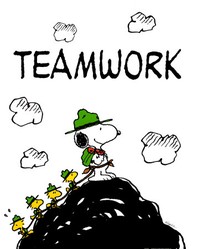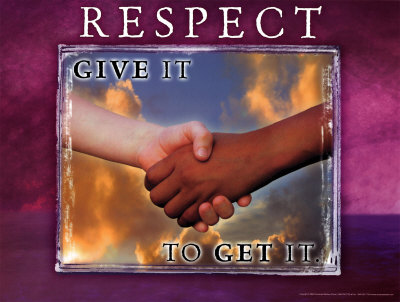Don’t Give Me That Attitude, It comes out of no where, suddenly one day your child begins to talk back and I mean really talk most often making a very good argument. It’s a difficult time when you child is looking at you with resistance and standing firm ready to go to battle for what they want. The time comes when we begin to ask ourselves how much back talk we should take from our kids. You’ve raised a strong and independent child, which is good, and yet we must establish boundaries as our kids begin exploring their independence.

When Kids Talk Back
by katiem2
What should a parent do when their kid starts to get a bit head strong, mouthy and assertive. Learn the boundaries between a good healthy debate from your child and going to far.
Kids Gaining Independence
As society changes so do our kids, they become more free thinking and out spoken at a much younger age now.
All parents have a different level of tolerance in determining what classifies as back talk. After talking with many parents and putting this question to them it all boiled down to this; sassy attitude, eye rolling and the quick lip are happening younger and with an air of normalcy. This was once considered the typical behavior of teens, which edged into tweens and now even younger. So what’s up with that?
Why Kids Attitudes are Changing
There are many contributing factors as to why kids are more in your face.
This didn’t happen overnight! Our kids are exposed to far more information and bad examples than we were as kids. TV is a major contributor with all those channels. The variety is staggering with its sitcoms on more stations geared for kids than their parents had in total growing up. TV is flooded with bossy behavior, kids in charge and running their own lives. These personalities can be rude, have tantrums and be uncooperative all in the name of humor. Ask yourself do you really find this good subject matter for laughs? Now ask yourself why should we be surprised when we get similar attitude from our kids?
We, the parents, must be good role models and set a standard raising the morality of our kids above those characters on television. It is true that kids learn by example and we the parents are a constant example.
Setting a Good Example for Kids
Adults should always be careful to set good examples plus avoid being a bad example.
We, the parents, must be good role models and set a standard raising the morality of our kids above those characters on television.
It is true that kids learn by example and we the parents are a constant example.
Be careful to set good examples of speech, body language and reactions to everyday common situations.
We've all heard this before, “You do it”
Be careful to model good behavior for your kids and don’t let sarcasm slip out because kids pick up on sarcasm using it later themselves.
The way you react to everyday common things is under constant observation by your kids. It is our kids who see and hear us at our worst. This one day will come back to bite you with a role reversal, be it your child who’s face to face with you at any given time emulating your past behavior.
Stress and fatigue can make it hard to be a good role model and yet it’s vital, so keep reminding yourself that they learn from your do, more than your say!
Kids really are like sponges they absorb the most amazing things, make their environment a good place to absorb and grow.
Being in a family is like being on a team, we must remember to treat our family like we treat those we treat with the most respect such as teachers, doctors, dentist and all the people who help build you up and protect you. Family is key!
Friend or Parent
Next comes the friendship, you just can’t be your kids friend, buddy or pal.
The need you to be their rock, the voice of reason, the bricks in the foundation of life keeping them from harms way so act like it. This is the number one things kids want, crave and need regardless of how big and grown up they act. After a long day the absolute last thing you want is to go toe to toe with your kid. We’ve heard so much about self-esteem over the past 20 years and its left us afraid to reprimand our kids as it mayl damage their self-esteem. Now wait a minute don’t our darlings have to live in the same world as do we, you know the one with rules, laws, jails and restraining orders?
Of course they do, the best friend you can be is a parent that reprimands when reprimand is due. The parent that sets expectation and boundaries makes a child or teen feel safe and secure giving them real self-esteem empowering them for life. They’ll love you more for keeping it real and playing it straight with them.
Raising a Polite Kid
Dealing with a mouthy child is no magic act yet with some basic strategies it comes easy.
How to Raise a Polite Respectful Child
- Be clear about what you expect when your child is acting out remind them the behavior is not acceptable, carefully and calmly explain the behavior that is, reminding them of the option and giving them the opportunity to change their future reaction.
- Don’t let it blow out of proportion at the first signal being a change in your child’s tone, perhaps a whiny pitch, or a demanding rude tone, put a stop to it by ignoring the behavior, no request should be answered that is made in an unacceptable manner, this does not allow it to form a habit, as the bad behavior doesn't work. Kids often resort to bad behavior to get what they want because many parents cave quickly as they don't want to be embarrassed. Don't let this trick get you in the web of manipulation, all kids try it don't be embarrassed by this, simply ignore it and it will stop.
- Don’t engage with a kid being flat out rude, ignore them refusing to participate in any struggle. Kids learn to use verbal skills to manipulate and wear parents down, don’t fall for this and don’t let it build steam from the start!
- Be firm and let your children know what’s not acceptable in our home, note the our, not my home. Anytime your child speaks out of turn just say, “I heard that and lucky for you I’m giving you the opportunity to try it one more time to rephrase it, I’ll respect you if you respect me, other wise I don't take part in such behavior, I know better.” This reaffirms you've got your act together and are a sound parental figure they can depend on.
- Don’t take notice of every bad behavior at once, pick your top concern and work on it till it’s resolved and move on to the next. This prevents you from burning out and makes the child aware of you unwavering intent. Plus you’ll both feel less stressed facing just one issue. Taking on more than one, picking at your child constantly makes you appear to be a mean person they easily over look and pay no attention to.
- Good Talking Back – We (adults) are often tired, stressed and craving a bit of piece and quiet when our child may have a legitimate topic to debate. Be careful not to shut your child down because they need to learn the art of debate by correctly getting their objection and or point across with tact. This is a very important skill to learn so be careful to teach the art of tactful objection. Your son or daughter needs to know its safe to talk to you and that you’re not some time bomb they’ll learn to avoid.
- Hearing Everyone’s Side – With the hustle and bustle of busy days and over tired parents pressed for time it's common for one kid to get the short end of the stick or in fact wronged. For this reason it’s important to have a family meeting and conversations over dinner. Allow time for each child to give their account of family matters while all others listen quietly without interruption. Continue round the table till everyone is heard and then back again with ideas to address the issues. I like to start off by playing high low; each person tells the family their high for the day and their low. This keeps the focus on unity and strength while hearing both the good and bad, after which you can proceed with ideas or request.
It’s crucial to talk as a family, no successful group, business, classroom or club operates without meetings or group discussions and you can’t expect a family to either. Remember, children are unique individuals all their own with free spirits and ideas. Talking with them on a regular basis about things that matter to them gains you a whole lot of ground for later debates and issues both good and bad.
You might also like
Fun Things for Teen Girls to DoIt's Summer, schools out and you need fun ideas for teen girls. We've got a ...
Fun Ways Teens Can Earn Money this SummerIf you wanna have fun this summer you know it takes money to do it. Learn how...











 Guide to Sourdough Bread Using Cups, Ounces and Spoon Measurementson 09/27/2025
Guide to Sourdough Bread Using Cups, Ounces and Spoon Measurementson 09/27/2025
 Parents Discover 3 Stress-Free Ways to Readingon 09/25/2025
Parents Discover 3 Stress-Free Ways to Readingon 09/25/2025
 How to Get More Reviews for Your Book: Why Authors Love Pubbyon 09/07/2025
How to Get More Reviews for Your Book: Why Authors Love Pubbyon 09/07/2025
 3 Best Blue Lotus Oils And Benefits That Wow Youon 06/03/2024
3 Best Blue Lotus Oils And Benefits That Wow Youon 06/03/2024


Discuss and debate the reasons and solutions for kids talking back and being defiant.
Mira, Defiant kids present special challenges and as hard as it is to maintain composure and at least seem calm maintain neutral ground is vital, hard but vital.
Sometimes my brother talks back to me in a not so pleasant way. I remind him that I never talk to him like that, and he quickly adjusts his behavior. Unfortunately, he gets bad examples from work, friends, etc. But after sailing some rough waters in various relationships, I couldn't agree with you more that no matter how tired or frustrated we are, we should try to be respectful and polite at all times. Unfortunately, some kids can be quite a handful, so respect on the part of parents might not be enough to teach them to behave. I've seen, from the outside, great parents with difficult kids. Your tips for dealing with defiant kids look very sound. Great article!
2uesday, very well said, this is a difficult time for many. It does seem to come from out of no where making it a bit of a surprise.
cherylone, Thanks for sharing this with her, it just may be the reinforcement she needs. :)
Good information for struggling parents and parents looking for a little guidance. I love it and intend to share it with my daughter whose child is a bit difficult LOL
Brenda, You make some very good points. I always enjoy hearing your feedback. Hopefully readers will note your comments and take heed. I have a brother who lives in California and one who lives in Kentucky, their kids are different as night and day. Southerners really are more polite and treat their kids like kids until they earn the role as young responsible adult. Where as, in other parts of the country kids are very rude and authoritative all while they have no authority to behave in such an adult manner. Knowing ones place is a good thing no matter how old you are. Have a great day Brenda, good to hear from you.
Very good article Katie. I think TV definitely has an influence on how kids behave today. It's also a cultural issue. Southerners don't tolerate their kids talking back. In California, you'll hear kids cussing their parents out in public. However, oftentimes parents are role modeling that bad behavior for them.